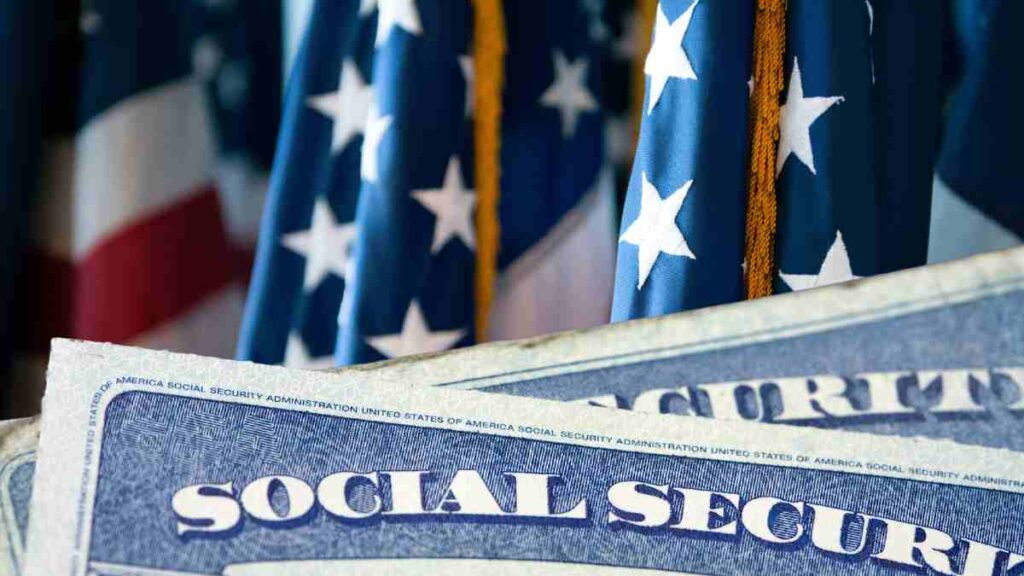Your Social Security Number (SSN) is a critical piece of personal information that, if misused, can lead to serious consequences. Today, it’s possible that your SSN is already circulating online, sometimes even in illegal marketplaces. But there are ways to safeguard it and prevent it from being used against you.
Your SSN serves as a unique identifier tied to an extensive amount of personal data. From your credit history to government benefits and employment records, many vital aspects of your financial life are linked to this number.
Why it’s essential to protect your Social Security Number
If someone gains access to your SSN, they could use it to apply for credit, open bank accounts, claim tax refunds, or even get a job in your name. This is why keeping your SSN secure and recognizing signs of misuse is so important.
The government offers a resource called Self Lock, which allows you to block your SSN from being used in employment verifications. This service, available through E-Verify, is free and prevents anyone from using your SSN to secure a job without your consent. To activate Self Lock, you need an account with E-Verify. Alternatively, you can contact the Social Security Administration (SSA) directly at 1-800-772-1213 to request a lock on your SSN, although calling may involve some wait time.
How to monitor your earnings and benefits
The Social Security Administration provides an online platform called my Social Security, where individuals can monitor their earnings history and benefits. Setting up an account on this platform is free, and it’s useful to check regularly for any irregularities.
Even if you’re not yet receiving benefits, reviewing your account at least once a year is advisable to ensure all recorded earnings match your actual work history. If your account is over three years old, you may need to update your access through Login.gov or ID.me for continued access to this platform.
Signs that someone might be using your Social Security Number
If someone is using your SSN without permission, there are several warning signs that could alert you to suspicious activity.
Unexpected bills or accounts
One of the clearest signs that your SSN may be compromised is receiving bills or notifications about accounts you haven’t opened. If someone uses your identity to apply for credit or set up services, you’ll likely be notified about a payment obligation. In this case, contact the issuer immediately to report the fraud and consider placing a freeze on your credit to prevent further issues.
Tax forms from unknown employers
Receiving tax forms, such as W-2s or 1099s, from companies where you’ve never worked could indicate that someone has used your SSN to secure employment. Employment-related fraud can cause complications with the IRS and lead to tax issues. If you find yourself in this situation, get in touch with the IRS promptly to avoid any potential legal or financial troubles.
Issues with your tax return
A red flag that someone is using your SSN to claim benefits is receiving a notification from the IRS stating that a tax return has already been filed under your name. This is a common method for thieves to receive refunds that rightfully belong to you. If this occurs, act quickly by reporting the fraud at IdentityTheft.gov, where you may also need to complete Form 14039 (Identity Theft Affidavit) to formalize the report.
Unfamiliar activity in your credit report
Checking your credit report for unfamiliar activity is another way to detect unauthorized use of your SSN. If you find new accounts or credit lines you didn’t apply for, it’s likely someone is using your identity. You are entitled to one free credit report each year from each of the three main credit bureaus, available through AnnualCreditReport.com. A helpful strategy is to request a report from one bureau every four months for continuous monitoring.
Denial of government benefits
If you’re denied benefits you’re entitled to, like disability, Medicare, or unemployment assistance, it could mean that someone else is using your SSN to claim these benefits. In this situation, contact the appropriate agency, explain your circumstances, and follow their instructions to restore your benefits.
What to do if you suspect identity theft
If you suspect that your SSN has been stolen or used fraudulently, it’s essential to act without delay. The Federal Trade Commission (FTC) offers a comprehensive guide at IdentityTheft.gov, where you can complete a form and receive a personalized action plan to recover your identity.
You can also inform the IRS through its identity theft center and contact your bank and credit providers. Many financial institutions offer free identity theft protection services that can help you monitor your situation and prevent fraud. Protecting your Social Security number requires constant vigilance and proactive steps. Although identity theft can have serious consequences, regular monitoring and the use of available tools can help you minimize the risks.
